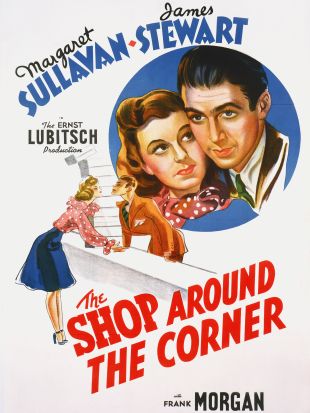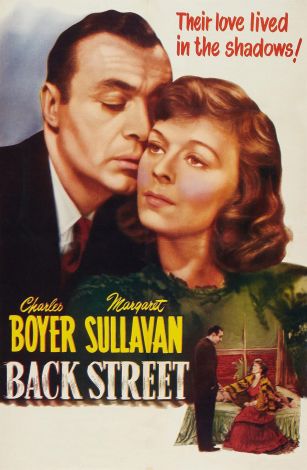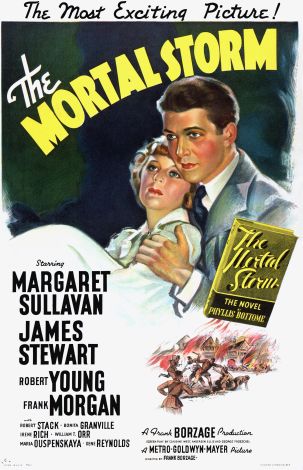Sullavan was born Margaret Brooke. Having studied dance and drama since childhood, she debuted onstage at age 17 with the now-celebrated University Players, a troupe which included several other future stars, including Jimmy Stewart and Henry Fonda. Three years later she made it to Broadway, and in 1933 she signed a lucrative film contract. For most of the next decade she was busy as a lead actress, but she had frequent disputes with her studio so occasionally returned to Broadway. In films she tended to be cast in melodramatic tear-jerkers, although she also proved her talents in straight dramas and sophisticated comedies. For her work in Three Comrades (1938) she won the New York film critics "Best Actress" award. For her work in Broadway's The Voice of the Turtle (1943) she won the Drama Critics Award. She retired from the screen in 1943, returning in only one additional film, No Sad Songs for Me (1950). In the late '40s she began to lose her hearing, and eventually she was nearly deaf; nevertheless, she continued a successful stage career. Her four husbands included actor Henry Fonda, director William Wyler, and producer-agent Leland Hayward. At 49 she took an overdose of barbiturates and died; her death was ruled a suicide. Her daughter, Brooke Hayward, wrote a memoir of the tragic years leading to Sullavan's death called Haywire.
Margaret Sullavan
Share on
Biography by AllMovie
Movie Highlights
Factsheet
- As a child, suffered from muscular weakness in the legs.
- Was student body president in high school.
- Worked as a clerk in the Harvard Cooperative Bookstore (The Coop).
- While attending Harvard University, performed with the University Players along side James Stewart, Henry Fonda and Kent Smith.
- Studied dance at the Denishawn School of Dance and drama at the E. E. Clive's Copley Theatre Dramatic School.
- Suffered from a congenital hearing defect, otosclerosis, that caused her to hear low tones better and caused her voice to develop a distintive throatiness.


